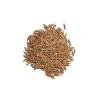| Question for scholars of the English language 17:54 - Jun 25 with 2521 views | GeoffSentence |
Is there an equivalent of the verb 'to show' but for smell.
To show means that there s something you would like someone to see, as in 'I would like to show you something'
But if there was something you wanted to smell, is there a word that would work in the same way? |  |
| |  |
| Question for scholars of the English language on 17:57 - Jun 25 with 2503 views | Mullet |
Huff this buh |  |
|  |
| Question for scholars of the English language on 17:58 - Jun 25 with 2488 views | ChiefXL |
Waft? |  | |  |
| Question for scholars of the English language on 18:02 - Jun 25 with 2484 views | Darth_Koont |
Smell my cheese!
Substitute “cheese” accordingly. |  |
|  |
| Question for scholars of the English language on 18:03 - Jun 25 with 2481 views | GeoffSentence |
| Question for scholars of the English language on 17:57 - Jun 25 by Mullet |
Huff this buh |
'I would like to huff you my malodorous emission'
That's the kind of usage I am after, not sure that's correct. |  |
|  |
| Question for scholars of the English language on 18:23 - Jun 25 with 2449 views | BigManBlue |
Don’t think so. A modal + infinitive, or passive construction are the only general uses that come to mind. |  |
|  |
| Question for scholars of the English language on 18:25 - Jun 25 with 2441 views | Mullet |
| Question for scholars of the English language on 18:03 - Jun 25 by GeoffSentence |
'I would like to huff you my malodorous emission'
That's the kind of usage I am after, not sure that's correct. |
Definitely is |  |
|  |
| Question for scholars of the English language on 18:31 - Jun 25 with 2430 views | MerseyBlue |
'I would like to give you a sniffter' a double f to avoid confusion with a small amount of alcohol. |  |
| "Never argue with an idiot. They will drag you down to their level and beat you with experience." | | Poll: | Who will be the winner? |
|  |
| Question for scholars of the English language on 18:36 - Jun 25 with 2415 views | GeoffSentence |
| Question for scholars of the English language on 18:23 - Jun 25 by BigManBlue |
Don’t think so. A modal + infinitive, or passive construction are the only general uses that come to mind. |
UNless you care to explain that as if speaking to a simpleton (toptip: I am one) I will have to invoke google to understand all that. |  |
|  |
Login to get fewer ads
| Question for scholars of the English language on 18:44 - Jun 25 with 2390 views | Ryorry |
Just "send you some smells/whiffs/scents/fragrances/perfumes"? (select noun of your choice). Or "blow some your way" if referring to farts. |  |
|  |
| Question for scholars of the English language on 19:34 - Jun 25 with 2337 views | NthQldITFC |
| Question for scholars of the English language on 18:23 - Jun 25 by BigManBlue |
Don’t think so. A modal + infinitive, or passive construction are the only general uses that come to mind. |
I just upvoted that on the basis that it sounds very impressive, even though I don't know what it means. A bit like classical music to me. |  |
|  |
| Question for scholars of the English language on 19:39 - Jun 25 with 2322 views | Ryorry |
| Question for scholars of the English language on 19:34 - Jun 25 by NthQldITFC |
I just upvoted that on the basis that it sounds very impressive, even though I don't know what it means. A bit like classical music to me. |
My take on this re classical music is that I actually don't *want* explanations of how or why individual pieces work, because that, for me, destroys their magic by reducing the pieces to nuts & bolts. |  |
|  |
| Question for scholars of the English language on 19:46 - Jun 25 with 2309 views | jeera |
You're switching roles with those examples though.
In one you are the subject whereas in the second example the other person is the subject.
So you are asking something of someone else; to smell. It is they who are the subject.
In the first sentence is it you who is actively showing them whatever it is you are showing them. We will assume your innocence here and that is is a kumquat or something you have on display. |  |
|  |
| Question for scholars of the English language on 19:49 - Jun 25 with 2303 views | The_Flashing_Smile |
Sniff this. |  |
| Trust the process. Trust Phil. |
|  |
| Question for scholars of the English language on 19:50 - Jun 25 with 2301 views | ArnoldMoorhen |
The closest I can think of is "to waft":
"I wafted the cherrywood smoke from the barbecue towards those seated around the table, and they salivated expectantly."
To create a current of air in order to move airborne particles in a particular direction; to put a smell in front of a person. |  | |  |
| Question for scholars of the English language on 19:54 - Jun 25 with 2291 views | ArnoldMoorhen |
| Question for scholars of the English language on 19:50 - Jun 25 by ArnoldMoorhen |
The closest I can think of is "to waft":
"I wafted the cherrywood smoke from the barbecue towards those seated around the table, and they salivated expectantly."
To create a current of air in order to move airborne particles in a particular direction; to put a smell in front of a person. |
My second best would be "to perfume".
My third best would be "to aromatise".
My fourth best would be "to atomise", in the precise sense of the noun "atomiser".
And in last place: "to air freshen" verb. What an air freshener does. |  | |  |
| Question for scholars of the English language on 20:07 - Jun 25 with 2273 views | jeera |
| Question for scholars of the English language on 19:54 - Jun 25 by ArnoldMoorhen |
My second best would be "to perfume".
My third best would be "to aromatise".
My fourth best would be "to atomise", in the precise sense of the noun "atomiser".
And in last place: "to air freshen" verb. What an air freshener does. |
Exude?
Emit? |  |
|  |
| Question for scholars of the English language on 21:02 - Jun 25 with 2230 views | BigManBlue |
| Question for scholars of the English language on 18:36 - Jun 25 by GeoffSentence |
UNless you care to explain that as if speaking to a simpleton (toptip: I am one) I will have to invoke google to understand all that. |
Tldr - probably, nothing. It’s one of those verbs where there is no active accusative meaning, maybe because it’s derived from a sensory perception. For what it’s worth I believe that ‘show’ comes from the Middle English for ‘to reveal’ in a prophetic sense, so it would have originally had a more intellectual than visual sense. [Post edited 25 Jun 2021 21:03]
|  |
|  |
| Question for scholars of the English language on 21:05 - Jun 25 with 2225 views | BigManBlue |
| Question for scholars of the English language on 19:34 - Jun 25 by NthQldITFC |
I just upvoted that on the basis that it sounds very impressive, even though I don't know what it means. A bit like classical music to me. |
Much obliged - 18 months of teaching English to slavic speakers has turned me into a pedant of the highest order.... |  |
|  |
| Question for scholars of the English language on 21:13 - Jun 25 with 2211 views | ronnyd |
| Question for scholars of the English language on 21:05 - Jun 25 by BigManBlue |
Much obliged - 18 months of teaching English to slavic speakers has turned me into a pedant of the highest order.... |
.... and it shows.  Just kidding mate. Just kidding mate.  |  | |  |
| |